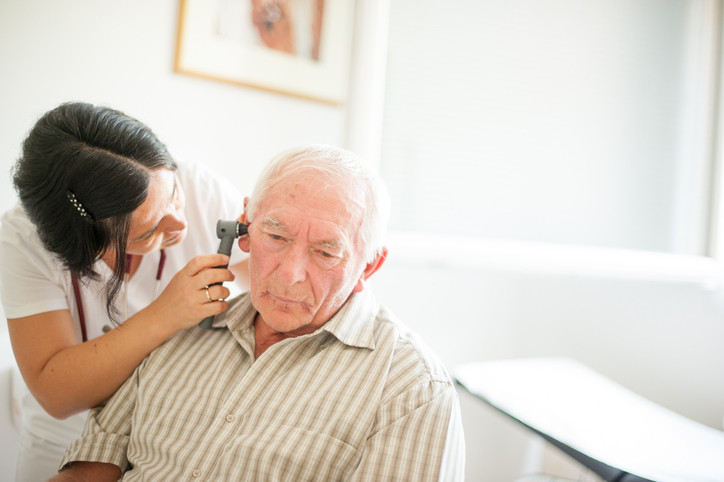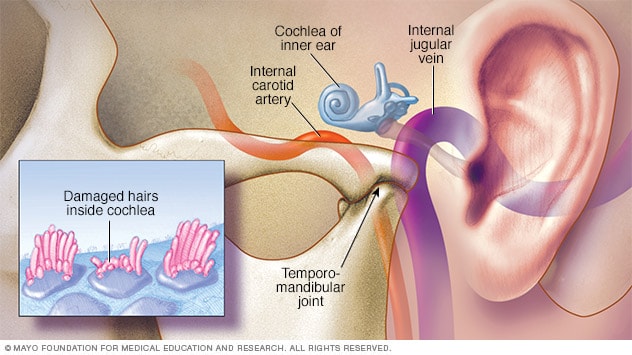Cautionary Lifestyle Approach to Tinnitus Avoidance
"[Tinnitus is] a condition characterized by experiencing sound in one or both of your ears when there is no external source causing that sound.""Tinnitus sufferers describe it as ringing, whistling, buzzing, hissing, whooshing or other similar sounds, to varying degrees of intensity.""It can be temporary or chronic and is typically a symptom of an underlying condition."Mayo Clinic
"As we prepared for a take, the engineer hit the talkback button and inadvertently sent a high pitched tone through my left headphone at a massive volume. It knocked me clean off my seat.""The sound of chirping birds and light breezes would soon become a distant memory.""So began my experience with tinnitus, described by professionals as a 'constant ringing clicking, hissing, buzzing, whistling or roaring'.""...I recently took a giant step and got some hearing aids. The devices are as discreet as a hearing aid could be. They do little to help with the tinnitus, but now I don't have to pretend I understand what people are talking about in restaurants and bars."Tony Horkins, drummer, musician, band member
 |
| Harvard Health |
The condition of tinnitus is held to affect roughly ten to fifteen percent of any population, one or two percent of whom find the condition just about intolerable. For most people the condition arrives gradually, with age. There is no cure for tinnitus, but a team at University of Minnesota recently published a large-scale study for treatment. The trial, headed by professor Hubart Lim, evaluated the efficacy of Lenire, a "non-invasive bimodal neuromodulation approach" using sound combined with electrical stimulation.
After twelve weeks of treatment, up to 80 percent of study participants experienced reduced symptoms of their tinnitus condition. At the Mayo Clinic, experts explain the many ways that tinnitus can become part of daily life; one of the most common introductions to the condition is brought about by exposure to loud sounds. A sudden blast of noise or prolonged exposure to loud sounds; i.e., music concerts, construction equipment, or explosives, can damage the delicate structures of the inner ear.
Age-related hearing loss commonly may lead to tinnitus since sensory cells in the inner ear may deteriorate during a lifetime, causing both hearing loss and tinnitus. Medical conditions also, such as high blood pressure, and medications that include antibiotics and antidepressants, can lead to tinnitus. The elderly are most susceptible to developing tinnitus. Obesity, cardiovascular problems, high blood pressure and a history of arthritis or head injury can increase risk.
If tinnitus is a symptom of a medical condition, according to experts at Johns Hopkins Medicine, treating the condition may help to reduce or eliminate tinnitus effects. Symptoms can be alleviated with sound therapy which aims to mask or distract from the sounds through the introduction of different, external sounds such as white noise machines, fans or specific tinnitus masking devices (sound machines or sleep-focused earbuds). Relief can be found for some sufferers by listening to soft music or nature sounds; streams, wind, rain or birdsong.
There is as well, tinnitus retraining therapy which combines sound therapy with counselling, to aid individuals to acclimatize to the tinnitus sound and reduce its intrusion. People can alter emotional and behavioural responses to tinnitus through cognitive behavioural therapy techniques. Anxiety and stress can be reduced around the problem. No medication has yet been developed specifically to effect a cure of tinnitus, but medications may be prescribed to alleviate specific symptoms such as anxiety or depression.
Avoidance is a good first step to tinnitus awareness in the awareness of loud noises, reduced exposure to implicating foods, medications and chemicals, along with managing stress levels. Regular exercise and adequate sleep are additional lifestyle-quality steps to routinely take with an ear to the future.
 |
Labels: Buzzing, Medications, Reduced Hearing, Ringing, Sound Exposure, Tinnitus

0 Comments:
Post a Comment
<< Home